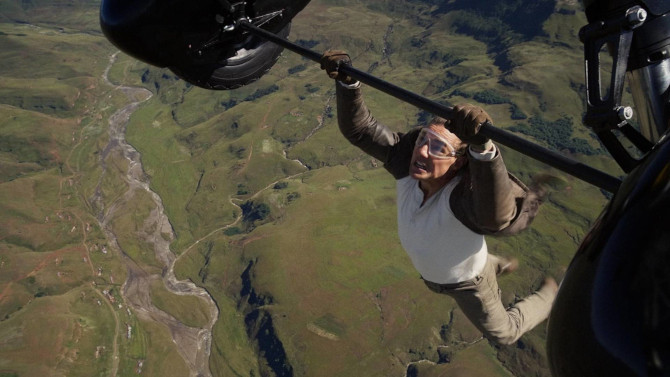
An Impossible Mission
How do you wrap up a franchise like Mission: Impossible? That is, if this even is the final installment... as they’ve made it sound (while at the same time, stars not named ‘Tom Cruise’ pipe up and suggest that might not be so). It has been twenty-nine years, with different writers and visionary directors – from twisty Brian De Palma and the action hair stylings of John Woo, to the lens flares of J.J. Abrams and animation expert Brad Bird, it was only about ten years ago that the franchise decided to opt for The Usual Suspects scribe Christopher McQuarrie for the final four. To return to that opening question once more, you could end with a Sopranos’ style cliffhanger, simply make another entertaining movie like the many before – like Everybody Loves Raymond did it with its final episode, or try to tie everything up in a neat little bow by bringing everything together as the Daniel Craig era did with James Bond. Well, it is definitely more along the lines of the latter example, with some distinct differences.
-

Christmas Update and Video
December 23, 2015First off, I hope that everyone has a Merry Christmas, a happy holiday season and an excellent New Year. I hope that you have enjoyed my site thus far and that you will check back next week for more great reviews.
-

Wick Lights the Fuse
John WickDecember 21, 2015Every once in a while, an action movie comes out of nowhere and blows people away. John Wick is one of those movies.
-

Frankly Speaking, See This Great Comedy
Frank and CindyDecember 19, 2015The closing picture of the St. Lawrence International Film Festival was G.J. Echternkamp’s Frank and Cindy; and it may have one of the more unusual pre-production tales to come out of Hollywood in recent history.
-

The Break-In Breaks Out
The Break-InDecember 16, 2015As I sat in the dark theatre waiting for the projector to light up the New York State premiere of The Break-In, a Swedish film written and directed by Marcus Ovnell, I had two things running through my mind . . . and both related to my high hopes for the film. The first was that I had attended a panel discussion featuring Ovnell and Nathan Jacobs (writer/director of Killing Poe) on the continuing influence of Edgar Allen Poe on the world of film. The panel provided a nuanced discussion on the two movies (while also making sure to provide no spoilers of the upcoming showing of either film) and being that I am a gargantuan Poe fan, this had me enthused for the premiere. The second was that I have yet to see a poor film or television show come out of Scandinavia over the past several years (whether it is the Girl With the Dragon Tattoo trilogy, Jo Nesbo’s Headhunters or television series such as Wallander and Borgen, to name of few).
-

A Wild Ride
The NymphetsDecember 14, 2015Sometimes the opening credits of a film can signal the type of experience you are in for and this is clearly the case with Gary Gardner’s The Nymphets. The credits are large, bold and frantically paced, which, along with the similarly themed musical score, highlights that we are in for quite the ride.
-

Audition Mesmerizes
AuditionDecember 12, 2015Matt Herron’s Audition is an exciting and original quasi-documentary that fuses together footage from an audition process where fifty couples (yes, that’s one hundred actors) vie for the final position of being the leading man and woman in a movie; the footage the couples film are then taken and spliced together to form the narrative movie they are auditioning for.
